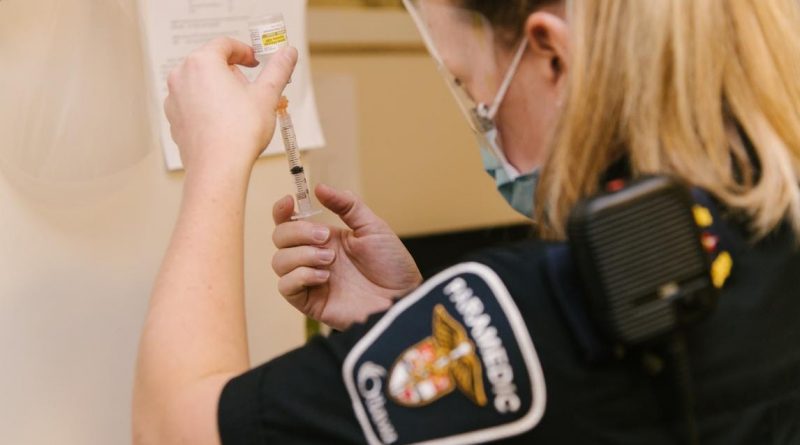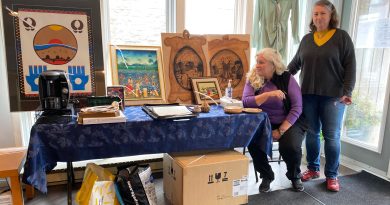City deploying mobile vaccine teams to LTC homes
OTTAWA – A system the City of Ottawa expects to use for vaccinating rural residents is already hard at work at Ottawa’s long-term care centres vaccinating residents and staff in the fight against COVID-19.
“Starting the process of vaccinating Ottawa residents against COVID-19 is a major milestone in the fight against COVID-19.” Ottawa staff released in a statement today (Jan. 13). “During the first phase of the vaccination program, the priority is vaccinating the people most vulnerable to COVID-19: the residents of long-term care homes, essential caregivers and others working in long-term care.”
Ottawa is the first municipality in Ontario to move the Pfizer-BioNTech vaccine from its main storage point and bring it to another location to administer the vaccine. Since the vaccine must be stored at extremely cold temperatures, this is no simple task. The City, Ottawa Public Health (OPH), the Ottawa Paramedic Service and the Ottawa Hospital are working together to meet the challenge.
In city-run homes, staff nurses have been working with the Ottawa Hospital to administer the vaccine, while in many privately run homes, it’s the Ottawa Paramedic Service that’s taking the lead.
“The City of Ottawa has brought together mobile vaccination teams that include paramedics specially trained to transport, dilute and administer the vaccine safely and efficiently and provide patient care,” staff said. “An OPH clerk is also part of each team.”
Each of the paramedics has a different role to play to ensure patient safety as the teams administer these long-awaited vaccines. Two paramedics provide the injections and the third stays with the resident for 15 minutes after the injection to monitor for any reactions. Among the three, one takes on a leadership function. They monitor the radio and can request any support needed at a moment’s notice.
Staff on site help to organize and gather the supplies the teams need, such as swabs, syringes, sharps containers, and the vaccine itself. Once the supplies are organized on a cart, the teams go from room to room, administering this life-saving vaccine to residents.
The Pfizer-BioNTech vaccine must be stored at very cold temperatures (-70 degrees C). The process of thawing the vaccine and getting all doses from the vial into syringes is known as dilution, and it must be done very carefully. Handling the vaccine properly ensures none of the contents of the vials are wasted. Pharmacists from the Ottawa Hospital and CHEO are specially trained in the handling of the vaccine. They have been on site to oversee this process and to train paramedics so they can dilute the vaccines themselves going forward.
An OPH nurse accompanies each team. Their role is to communicate with staff at the home and make sure all vaccine doses are accounted for. The OPH clerk, in turn, enters the data into a tracking system.
“The program to vaccinate residents against COVID-19 is like nothing this generation has experienced,” staff said. “And while this important milestone should give us hope for the future, everyone must continue to follow public health guidelines: wear a mask as much as possible, stay two metres apart from those outside your household, wash your hands frequently and stay home when you are sick. The rollout of the vaccine will evolve, and the work will look different during each stage of the program. But one thing remains clear: the partnership between the many organizations involved will remain key to our success in this life-saving vaccination program.”












